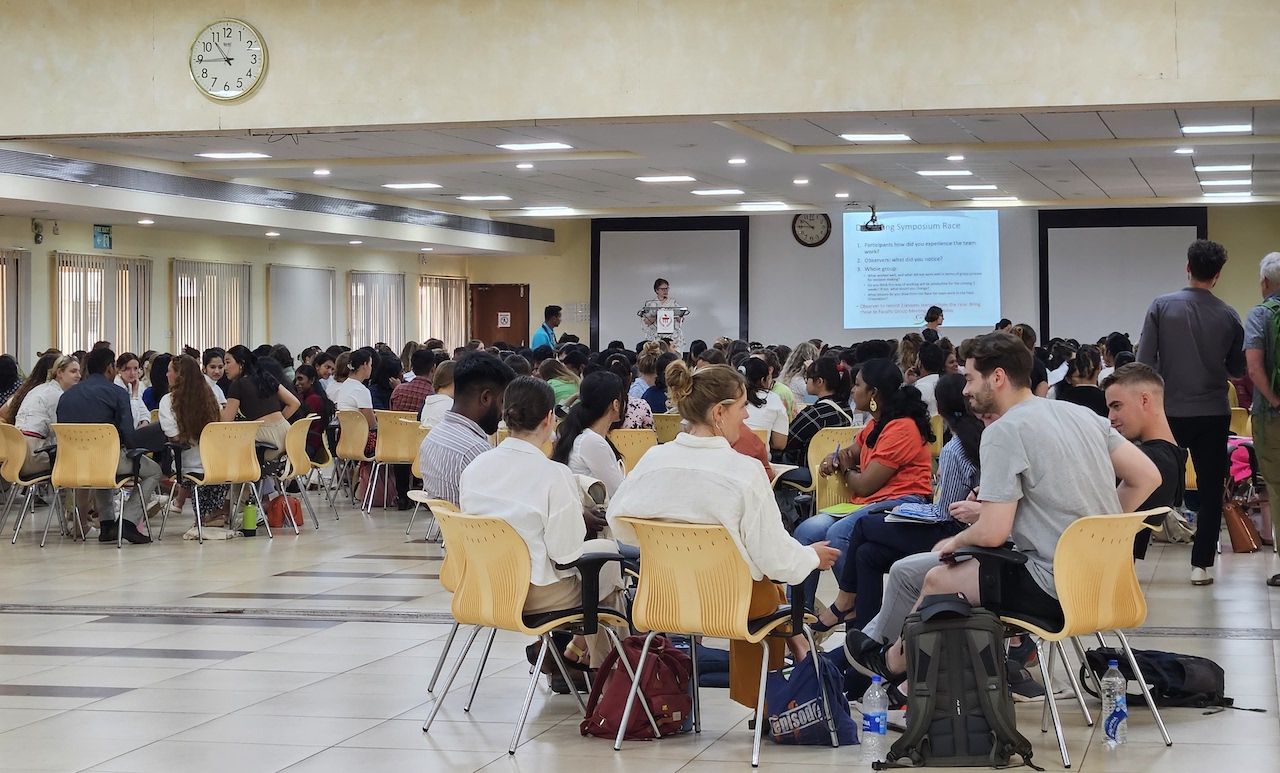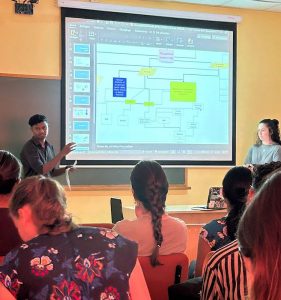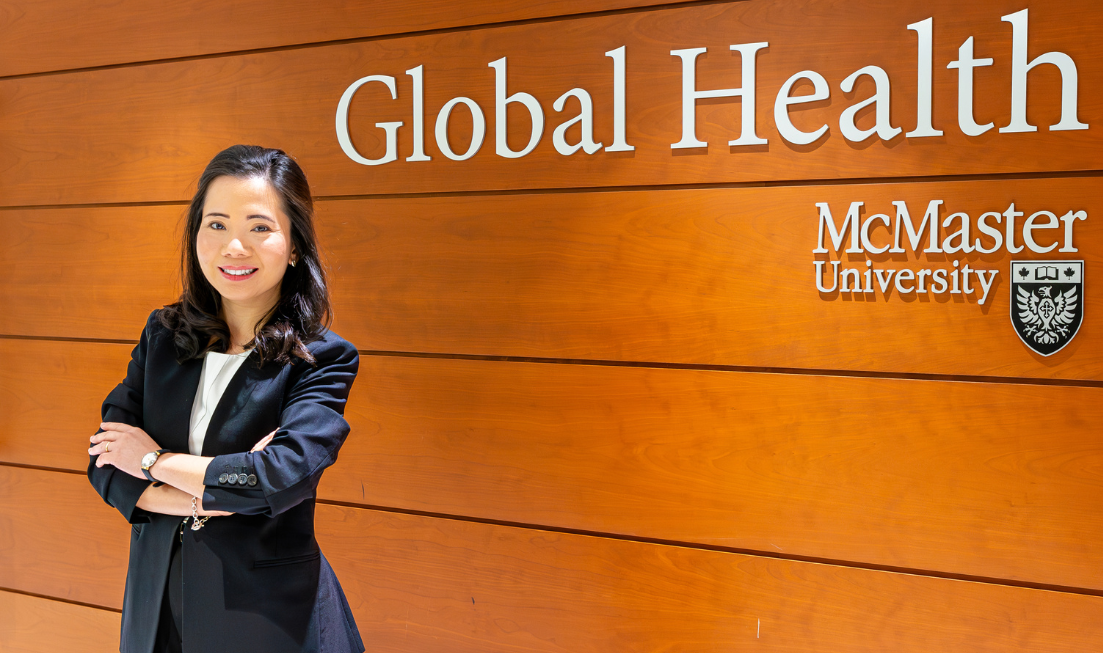Students develop system thinking skills for a globalized world

The annual Global Health Learning Symposium is driven by educational innovation and uses multiple modalities such as learning pods, cluster interaction, and transcontinental faculty.
As one of many activities, students from McMaster University and its partnership universities in The Netherlands, India, Sudan, Colombia, and Thailand work closely together in small teams on a system mapping exercise.
System mapping is an approach often used in global health consultancy work to quickly generate an overview of a system or a part of a system to assess how it is functioning, and whether any adjustments need to be made to enhance elements of the system. The system mapping exercise is designed to introduce students to systems thinking, provide them with an opportunity to collaborate and learn from the unique perspectives, backgrounds, knowledge, and skills among students from partnership universities.
“Applying system mapping provides students the chance to apply what they have learned from their courses throughout the academic year” says Dr. Arathi Rao, Program Coordinator, Master of Public Health, Manipal Academy of Higher Education (MAHE), “they are able to depict the connections and relationships between various stakeholders and then demonstrate their understanding in a panel discussion.”
This year, in the online symposium, students created system maps related to a chosen topic regarding the countries’ health care systems. Students attending the symposium in MAHE focused on various topics within the health care system in India. With the opportunity to engage in stakeholder dialogue and community visits, students collected information to help inform and build their system maps.
The topics range from Occupational Health, Environmental Health, Traditional Health, Reproductive and Child Health, Infectious Disease Surveillance, Mental Health, and Planetary Health. Community visits in Manipal, India included the Karkala Cashew Factory, Alveoor Dump Site, Rural Maternity and Child Welfare Home, Manipal Institute of Virology, Pareeka Ayurveda Centre and Manchi Slums, to name a few.
“On the last day of our Infectious Disease Surveillance community visit, we visited the Manipal Institute of Virology,” remarks Sai Noon, MPH Global Health student from Thammasat University, “I was highly impressed by its advanced and systematic setup. Despite time flying by, the visit taught me many new things that I will always cherish.”
 The culmination of the group work is a presentation and panel discussion where students will respond to moderated questions and demonstrate their understanding of system mapping – an essential approach for navigating the complexities of global health problems.
The culmination of the group work is a presentation and panel discussion where students will respond to moderated questions and demonstrate their understanding of system mapping – an essential approach for navigating the complexities of global health problems.
Throughout the two weeks, students are immersed in an experiential learning experience and provided with opportunities which emulated real world international collaboration and critical thinking. As emerging global health professionals, students develop cross-cutting skills to work in a globalized world.
Global Health News, UncategorizedRelated News
News Listing

Health and Humanitarian Implications of War, Crises, and Conflict
Global Health News
November 11, 2024

Daily News ➚
Professor creates innovative training tool to help surgeons save new mothers’ lives
Global Health News
October 31, 2024

“My work does not only come from a place of intellectual curiosity, but also shared grief”: Dr. Zoha Salam’s Journey as the Second Global Health Doctoral Program Graduate
Global Health News, Student and Alumni Profiles
June 20, 2024
